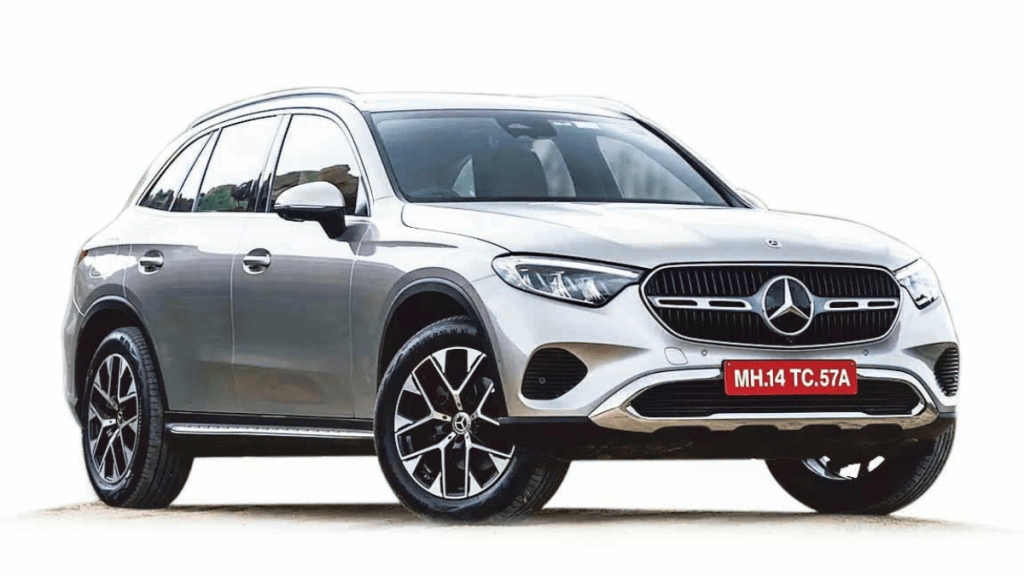Until about a month ago, when automakers of every hue were ruing stock pileup at the retail end, marketing folks at Mercedes-Benz India (MBIL) were busy making other plans: how to transition all 100 Indian outlets to its three-year-old Retail of the Future (ROTF) model over the next 12 to 18 months.
The luxury carmaker sold its last model to an authorised dealer in India way back in October 2021. With ROTF, MBIL took direct control of inventory and order processing, with dealerships no longer required to make heavy capital investments in the inventory. Dealerships such as T&T Motors, Silver Arrows and Global Star took care of test drives and vehicle deliveries. “Retail of the Future disrupted the traditional auto retail business by introducing complete price transparency, removing hidden pricing elements like handling charges, leading to higher residual value and therefore a positive experience for customers,” says Santosh Iyer, MD & CEO, Mercedes-Benz India.
India was the fourth country on MBIL’s global map to roll out the ROTF plan in 2021. Since then, it has sold 50,000-plus cars through this direct-to-customer (D2C) retail model.
Till the time ROTF hit the roads, automakers didn’t sell directly to consumers — that is, when they were not selling digitally. They worked with dealers who in turn sold cars to customers. But today’s customers seek better control of the buying process and want the emotional connection that comes from personalised interactions. And the D2C sales model ticks all those boxes.
As far as the brands are concerned, D2C does more than just manage inventory and drive sales — it allows them to directly own and control the customer relationship, end-to-end. That explains the rapid growth of D2C offerings in today’s marketplace. Statista forecasts digital D2C sales will reach $100 billion by 2025, up from $33 billion in 2020. Subhabrata Sengupta, partner, Avalon Consulting, notes that the shift to D2C makes sense for a carmaker with a small footprint, especially in the luxury segment where overall brand experience reigns paramount. He says, “Dealers need to evolve their business model around service, where they make most money anyway.”
Get, set, go
MBIL’s efforts to spruce up its retail act is also a reflection of the country’s rising importance in the global luxury market. India is among the carmaker’s top 10 markets globally.
Also, analysts reckon auto companies will steadily shift to a D2C sales model as consumers demand the convenience of ordering the exact vehicle specs they want with fewer barriers and needless human interactions. Flagbearer Tesla, whose India debut is awaited, has used a D2C sales model right from its inception. It has established an international network of company-owned showrooms and says owning the sales channel gives it an advantage in developing products faster.
Back home, MBIL’s ROTF model has started transforming the auto retail scene with many others waiting in the wings to make their D2C debut, says Faisal I. Farooqui, CEO, MouthShut.com. “This frees up dealerships to focus on premium customer service, while customers benefit from transparent and consistent pricing across locations,” he says. After Mercedes, Volvo Cars India in 2023 announced it was shifting to a D2C retail sales model — so it would own the entire stock of cars, process orders and complete them. The role of showrooms had evolved from being transactional to experiential, it said while announcing the transition.
The automakers’ move to establish a D2C network also highlights the growing role of technology in automotive retailing. “Tech-enabled tools allow customers to explore models in detail and personalise options from the comfort of their homes,” says Himanshu Arora, CEO & co-founder, GoMechanic. “This digital engagement not only broadens accessibility but also meets the expectations of a younger, digitally connected audience, making the luxury buying experience more immersive and tailored.”
Virtual showrooms, AI-powered personalisation, and data analytics are becoming table stakes, says Puneet Gupta, director of S&P Global Mobility. Every stage of the purchase journey — from online research to reserving test drives — benefits from integrated experiences that eliminate friction. Brands are also leveraging online reviews, NPS scores, and feedback to meet the demands of luxury buyers, adds Farooqui.
